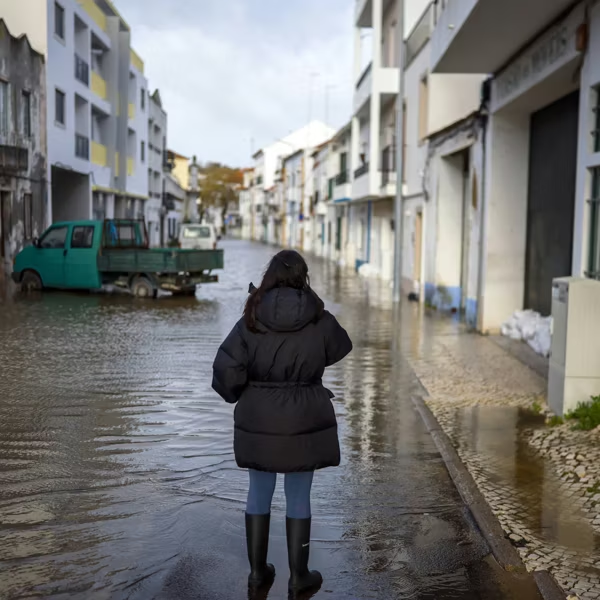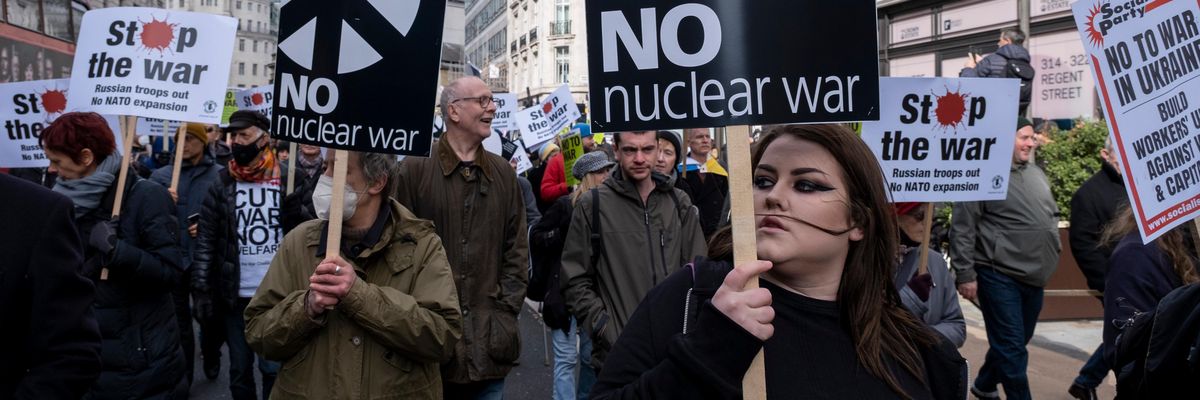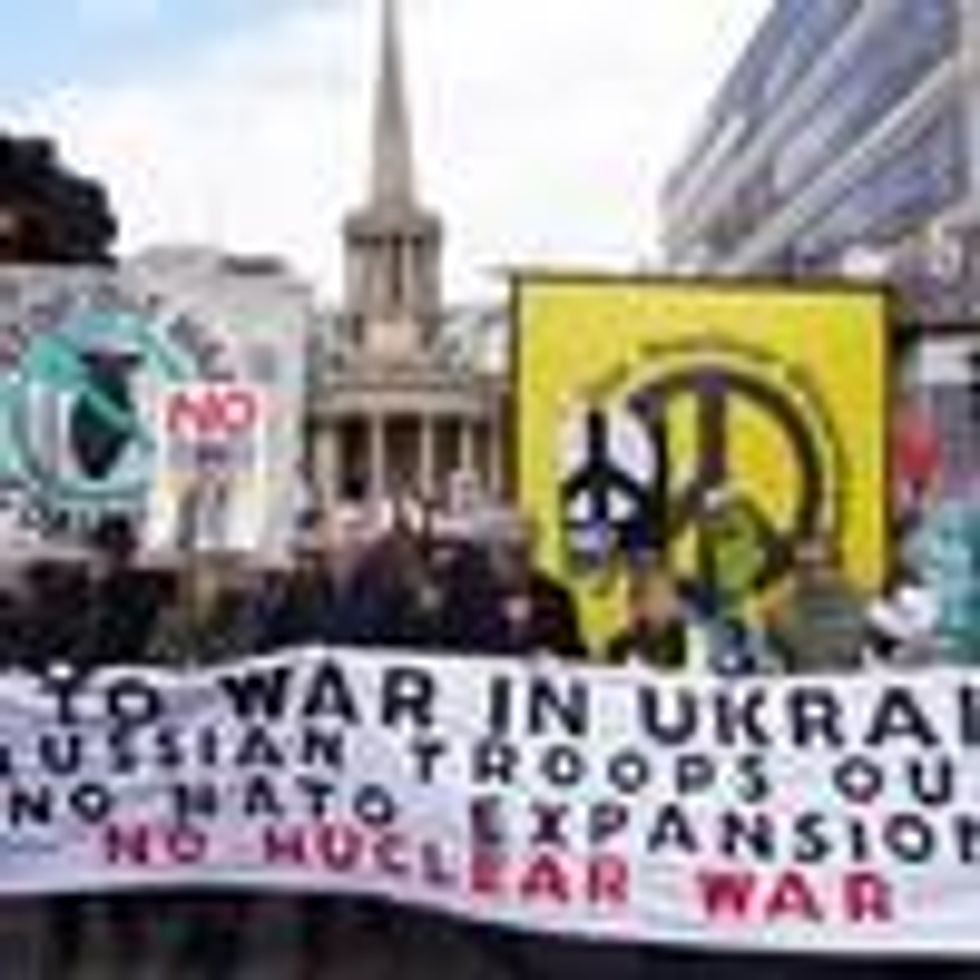As Russia's invasion of Ukraine revives the terrifying specter of thermonuclear annihilation, a scientific study published Thursday revealed that a nuclear exchange involving as few as hundreds of warheads would likely cause a "little ice age" lasting centuries or even millennia.
"It doesn't matter who is bombing whom... Once the smoke is released into the upper atmosphere, it spreads globally and affects everyone."
Scientists have long known that even a "limited" thermonuclear war could result in a so-called nuclear winter, or prolonged global cooling resulting from atmospheric soot blocking life-sustaining sunlight. However, the new study examines the effects of such warfare on the Earth's oceans and marine ecosystems.
Researchers simulated two hypothetical nuclear wars: a U.S.-Russia thermonuclear exchange in which 4,400 100-kiloton warheads were launched against cities and industrial targets, sparking conflagrations that spewed more than 330 billion pounds of smoke and sunlight-absorbing black carbon into the Earth's upper atmosphere, and an India-Pakistan conflict involving 500 100-kiloton bombs that produced up to 103 billion pounds of smoke.
In all of the researchers' simulations, nuclear firestorms spewed soot and smoke into the upper atmosphere, blocking out the sun and resulting in global crop failure. In the first month after the war, average global temperatures plunged by about 13degF, a larger temperature change than during the last ice age.
"It doesn't matter who is bombing whom. It can be India and Pakistan or NATO and Russia. Once the smoke is released into the upper atmosphere, it spreads globally and affects everyone," Louisiana State University professor Cheryl Harrison, the study's lead author, explained.
The researchers found that ocean temperatures would quickly and irreversibly plummet, with spreading sea ice causing catastrophic coastal blockages that would render shipping impossible in much of the world.
In an even more ominous development, "the sudden drop in light and ocean temperatures, especially from the Arctic to the North Atlantic and North Pacific oceans, would kill the marine algae, which is the foundation of the marine food web, essentially creating a famine in the ocean," a summary of the report published in Science Daily stated. "This would halt most fishing and aquaculture."
Study co-author Alan Robock, a professor of environmental sciences at Rutgers University in New Jersey, said that "nuclear warfare results in dire consequences for everyone."
"World leaders have used our studies previously as an impetus to end the nuclear arms race in the 1980s, and five years ago to pass a treaty in the United Nations to ban nuclear weapons," he added. "We hope that this new study will encourage more nations to ratify the ban treaty."
The Treaty on the Prohibition of Nuclear Weapons (TPNW) has been ratified by 65 nations--but none of the world's nine nuclear powers. Commenting after last month's first meeting of state parties to the TPNW in Vienna, disarmament campaigner Alice Slater told InDepthNews that "the dark clouds of war and strife continue to plague the world."
Related Content
Amid Putin's Saber-Rattling, 65 Nations Condemn 'Any and All Nuclear Threats'
Brett Wilkins
"We are enduring continued violence in Ukraine, new nuclear threats issued by Russia including a possibility of sharing nuclear weapons with Belarus, in the context of tens of billions of dollars in armaments being poured into Ukraine by the U.S., and a brutal and careless rush to expand the boundaries of NATO to include Finland and Sweden," she added.





